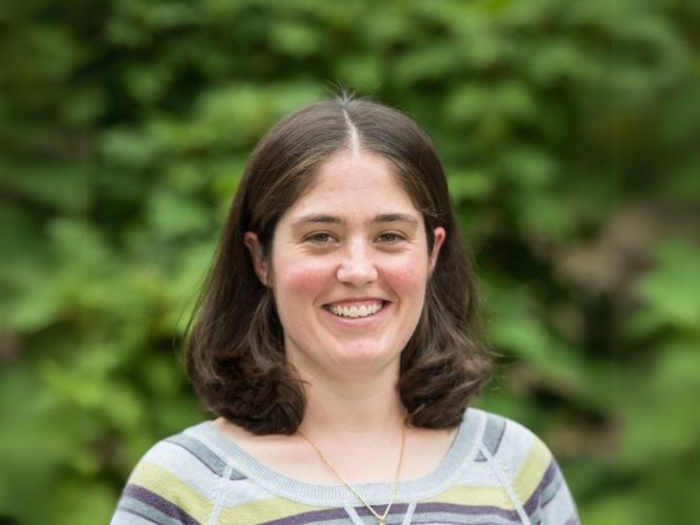The University of Michigan Regents approved seven U-M Medical School Department of Anesthesiology faculty promotions during their May 2024 meeting. Promotions will go into effect September 1.
The following profiles were compiled from information submitted in promotion nomination packets.
Ross Blank, MD
Promoted to clinical associate professor
Ross Blank, MD, is board certified in anesthesiology and critical care medicine. An expert in thoracic anesthesia, mechanical ventilation and surgical critical care, he serves as director of thoracic anesthesia. The demands of the COVID-19 pandemic propelled him into a vital hospital leadership position as medical director of the RICU, which led to subsequent appointments overseeing clinical policies for the department and as the M-Plan co-director of the SICU.
Blank’s scholarly work serves as a bridge between the specialty of anesthesiology and other related fields of medicine including general surgery, thoracic surgery, head and neck surgery, pulmonology, emergency medicine, nursing and respiratory care. His review articles and book chapters have brought in-depth knowledge of mechanical ventilation from the ICU into the OR and back to the ICU, while his COVID-related work focused on different aspects of effectively assembling partners in urgent and dangerous times. He is currently involved in a clinical trial testing an intraoperative anesthetic in the ICU. Blank was named the 2020 Robert B. Sweet Clinical Instructor of the Year by the department’s anesthesia residents and has been an invited speaker nationally and abroad on the topics of respiratory physiology, mechanical ventilation and critical care monitoring.
Ryan Davis, MD
Promoted to clinical associate professor
Ryan Davis, MD, is board certified in anesthesiology, critical care medicine and basic perioperative transesophageal echocardiography. He is internationally recognized for his scholarly work on the topics of ICU ventilator management, intra-operative dead space evaluation, patient monitoring and resuscitation of patients receiving anesthesia. His research in pulmonary dead space has allowed clinicians to consider targeting this difference in their patient management. He also made a significant contribution by providing evidence to support clinical decision making regarding re-extubation, and his expertise in resuscitation has allowed him to collaborate with a multispecialty study evaluating the factors that are associated with post-operative AKI in liver transplant patients. He has made additional significant scholarly contributions to the field through a collaboration with AlertWatch, other critical care physicians and anesthesiologists to develop a novel multifunctional decision support/alerting system for patients in acute care, ICU and floor wards called AlertWatch Acute Care (AWAC). He is first author of a book chapter on anesthesia monitoring in Miller's Basics of Anesthesia 8th Edition.
Davis serves as medical director of the University Hospital (UH) PACU, clinical director for the UH operating rooms and as a member of the department’s Executive Education and Program Evaluation Committees. Nationally, he is a member of the Vanguard Committee for the Society for the Advancement of Transplant Anesthesia.
Goodarz Golmirzaie, MD
Promoted to clinical associate professor
Goodarz Golmirzaie, MD, is board certified in anesthesiology and pain medicine. His research on Complex Regional Pain Syndrome (CRPS) and its correlation with negative affect has impacted the way pain clinicians treat patients with CRPS and other similar nociplastic pain states, and his role in the multicenter NIH-funded Back Pain Consortium trial has had a national and international impact in the way physicians treat and manage back pain in terms of identifying biomarkers and potential therapeutic targeted interventions. His scholarly work is notable with publications in high-impact journals relating to pain medicine, and he has been a co-investigator on several grants focusing on pain medicine and medical education.
Golmirzaie serves as associate director for the division of pain medicine, which oversees clinical operations in the back and pain center at Burlington. As a clinician-educator, he has participated in the Medical Educators Scholars Program, co-created a medical school curriculum on pain and opioids, and is a full-time faculty member in the medical school’s doctoring program, where he has created sessions that revolve around disparities and bias in medicine. Additionally, he has had major influence on the opioid epidemic through education and increasing awareness of the implications of opioid use both institutionally and regionally.
Sathish Kumar, MBBS
Promoted to clinical professor
Sathish Kumar, MBBS, is an expert in the field of perioperative management of liver transplantation. His scientific investigations have resulted in consensus national guidelines in the management of living donor liver transplantation. He is also well recognized nationally in management of coagulopathy in patients with end-stage liver disease. He is currently involved in various clinical trials and recently conducted a randomized clinical trial using a newer coagulation technology that resulted in FDA approval of this device. His experience with hemodynamic monitoring devices has led to invitations to work on novel innovative monitoring devices — this work has attracted significant external funding with ongoing prospective clinical trials to improve postoperative outcomes. He also is co-investigator for the Michigan site for a large PCORI funded multicenter randomized controlled trial comparing outcomes of two different types of anesthesia.
Kumar is a member of the National Patient Blood Management Committee of the American Society of Anesthesiologists and plays a major role in implementing safe blood management practices. He serves on the Executive Council of Society for the Advancement in Transplant Anesthesia, the Quality and Standards Committee of the Society for Advancement of Transplant Anesthesia and as co-chair for the Practice Management Committees. Furthermore, he recently was accepted to serve as a member of the inaugural Business and Practice Committee of the International Liver Transplantation Society, where he contributes his expertise to the advancement of the field.
Duan Li, PhD
Promoted to associate research scientist
Duan Li, PhD, has made a significant impact in the field of anesthesiology and computational neuroscience through her extensive work investigating the neurophysiological correlates of altered states of consciousness. The interface of anesthesiology and neuroscience is characterized by several fundamental questions of both clinical and scientific importance. While she and others have published extensively on the brain dynamics and altered states of consciousness, she is one of the first to demonstrate that the EEG-derived connectivity patterns are not static during the stable maintenance phase of general anesthesia in humans, which provides insight into the neurobiology of general anesthesia and the practical use of connectivity for monitoring brain states. Her work on the effects of ketamine on neurophysiological complexity and spatiotemporal organization advances our understanding of the complex pharmacological, neurophysiological and phenomenological properties of ketamine, which can serve as a unique tool to probe different states of consciousness.
Li also has worked closely with basic and clinical investigators to translate the analytical tools to other studies in both humans and animals, which have led to significant findings that benefit clinical care in anesthesiology and advance neuroscientific understanding.
Emily Peoples, MD
Promoted to clinical associate professor
Emily Peoples, MD, is a board certified anesthesiologist whose work as the department’s anesthesiology residency program director has made a significant impact in trainee curriculum advancements and professional identity formation. She has conceptualized and implemented multiple curricular improvements in the department’s training programs and has spoken to these accomplishments on a national platform with the American Society of Anesthesiologists. Her scholarly contributions focus on assessment and advancement of medical education research literature in anesthesiology, and she has participated in an annual series of critical appraisals of the literature. She also has a current internal grant on the development and evaluation of a tool for resident assessment of competencies.
Peoples is a recent recipient of the medical school’s GME Mentor of the Year Award, which recognizes a faculty member who has served as an outstanding mentor to residents or fellows. She is a member of the department’s DEI Committee and helped develop a more holistic review of residency applications. Nationally, she is active with the American Board of Anesthesiology as a committee member and senior editor for the BASIC exam.
Elizabeth Putnam, MBBS
Promoted to clinical associate professor
Elizabeth Putnam, MBBS, was the inaugural director of simulation for pediatric anesthesiology and now serves as director of simulation for anesthesiology. She has made an important impact nationally on simulation education by planning and facilitating the first Managing Emergencies in Pediatric Anesthesia (MEPA) course to be held in the United States. She has initiated and supported the launch of many new simulation curricula and has been invited to present the Physician Resilience Program across the United States. She is active in simulation-based research and is currently investigating novel eye-tracking technology to review situational awareness during simulated perioperative crises.
Putnam also is an active member of the medical school’s Academy of Medical Educators and was invited to join the Learning Health Sciences’ Clinical Simulation Center as core faculty and the department’s Clinical Competency Committee. She was awarded Educator of the Year in 2017 and 2019 by the Pediatric Division of Anesthesia and Simulation Educator of the Year in 2021 by the Clinical Simulation Center. She is a member of the department’s Quality Assurance Committee, serves as the liaison to Pediatric Gastroenterology, and is a founding member of the Anesthesiology Education Research Committee. Nationally, she participates in a simulation special interest group for the Society for Pediatric Anesthesiologists and the Simulation Education Network for the Maintenance of Certification in Anesthesiology.

Clinical Associate Professor

Clinical Associate Professor

Clinical Associate Professor

Clinical Professor

Associate Research Scientist

Clinical Assistant Professor

Clinical Assistant Professor





